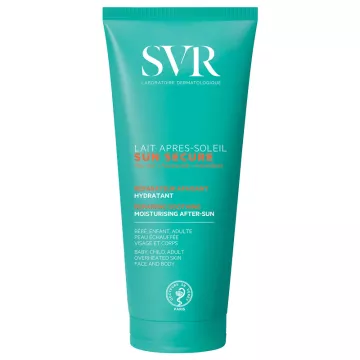
The sun, a source of life and well-being, can also be a formidable enemy for our skin. Prolonged exposure to UV rays without adequate protection leads to skin damage that can range from simple sunburn to more serious long-term effects. So after-sun care is not just a beauty gesture, but a real health necessity.
What is after-sun care and why is it important?
After-sun care refers to all the practices and products applied to the skin after sun exposure. Its main aim is to rehydrate, soothe and repair the skin from UV damage. It is crucial for preventing premature aging, reducing the risk of cell damage and maintaining skin elasticity.
What are the signs indicating the need for after-sun care?
Signs requiring after-sun care include: redness, feelings of heat and tightness, extreme dryness, and in severe cases, blistering. These symptoms indicate that the skin has been attacked and requires special attention to help it regenerate.
How to choose the right after-sun product?
Choosing the right after-sun product depends on a number of factors, including skin type, level of sun exposure and symptoms experienced. Products enriched with aloe vera, hyaluronic acid and vitamin E are particularly recommended for their moisturizing, soothing and antioxidant properties. It's also wise to select alcohol-free products, to avoid further irritation.
What are the best practices for applying after-sun care?
To maximize the effectiveness of your after-sun care, apply it to clean, slightly damp skin. This facilitates absorption of the active ingredients. Don't neglect any part of your body exposed to the sun, including your neck, ears and feet. Reapply as often as necessary, especially if you feel dry or tight.
Is it possible to prepare a homemade after-sun treatment?
Yes, it is possible to prepare a homemade after-sun treatment using natural ingredients with soothing and moisturizing properties. A popular recipe is to mix pure aloe vera gel with a few drops of lavender essential oil and a little coconut oil to nourish and soothe the skin. However, for very sensitive skin or severe burns, we recommend products specifically formulated for after-sun care.
What's the difference between a classic moisturizing lotion and after-sun care?
The main difference lies in the formulation of the products. After-sun products are specifically designed to meet the needs of skin after sun exposure. They contain soothing and refreshing ingredients, such as aloe vera and chamomile, as well as more powerful repairing and moisturizing agents than those found in conventional moisturizing milks. What's more, some after-sun care products offer anti-inflammatory properties to calm redness and overheating.
Is it necessary to use after-sun care if I'm not burnt?
Yes, it's advisable to use after-sun care even if you don't have any burns. Exposure to the sun dehydrates the skin and can cause short-term, invisible damage. Using after-sun care helps to rehydrate the skin, restore its natural protective barrier and prevent premature ageing caused by UV rays.
How long after sun exposure should I apply after-sun care?
We recommend applying after-sun care as soon as possible after sun exposure, ideally after showering, when the skin is clean and still slightly damp. This helps maximize absorption of the nourishing and repairing ingredients. If you continue to experience dryness or tightness, don't hesitate to reapply the product during the day or evening.
Can after-sun products prolong a tan?
Yes, some after-sun products are formulated with ingredients that help prolong tanning by promoting cell regeneration and preventing skin flaking. The deep hydration they provide also helps maintain smooth skin and an even complexion, which can give the impression that a tan lasts longer.
Are there after-sun products for sensitive or acne-prone skin?
Yes, there are after-sun care products specially formulated for sensitive or acne-prone skin. These products are generally fragrance-free, non-comedogenic and dermatologically tested to minimize the risk of irritation or allergic reactions. They may contain soothing and repairing ingredients such as aloe vera, thermal spring water or plant extracts with anti-inflammatory properties. It's important to read labels carefully and choose a product suited to your skin type.